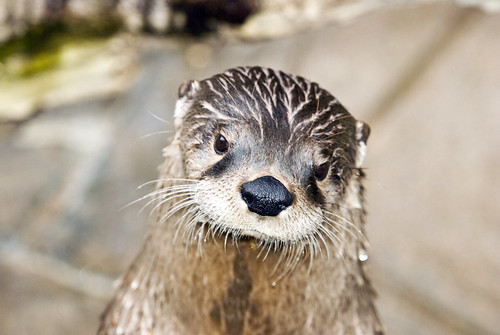I've got a confession to make. There is a new website that is capturing an increasing number of spare minutes in life. It provides an endless stream of visual inspiration, and every time you use it, you can't help but feel a bit more creative. Yep, I'm in love with Pinterest, the latest over-hyped tech media darling.
I did try to resist it, I swear. When I saw the first blog posts about it, I thought I didn't need a service like that. I tried to convince myself that Tumblr and Instagram were enough for me. And I didn't want to fall into the whole "women love Pinterest" stereotype. But then, as the hype kept growing, I gave in to my curiosity and a professional dedication to trying out all the new cool social services in town. And I haven't looked back ever since. Why is that, and why does it matter?Pint-huh-ha?
So, what is the big deal? Pinterest describes itself as a virtual pinboard, a place where you can "organize and share all the beautiful things you find on the web". Often, you see it described as a bookmarking service with a focus on images. If you ask me, all these descriptions don't really encapsulate the real spirit of the service. Pinterest in basically a great visual experience that you have to try on your own to really get it.
Using it is pretty simple: you drag a "Pin It" bookmarklet to your browser's bookmarks bar, and then click on it whenever you stumble on an interesting image on the web. If you've got a minute to spare, you can see how easy the whole thing is in the video below:
Of course, you can also "repin" images other Pinterst users share. Regardless of whether you create your own original pins or play the curator and just choose the best pins from the community to highlight, each pin helps you construct your own visual board around different themes. And you can even create collaborative boards with your friends.
What can we learn from Pinterest?
As you can see, the service itself is pretty straightforward. However, if we scratch the surface a little, we can easily find simple, yet valuable secret ingredients that can help any service or product become more awesome in today's competitive world:
1) Delight and surprise the curious animal inside me or I'll move on
aka Build insanely great user experiences: It's never been easier to design and create stunning user interfaces that captivate users' attention. This is not the web we knew in 1995 (remember?). Honestly, what is your excuse for not investing into good design and a polished user experience? No resources left?
Well then, what in the world makes you think I'm going to spend my precious time figuring out where to click next or how to open your box? Don't be selfish, take my hand and show me where you want me to go. I don't have time to waste for aimless wandering among buttons, site maps and what now. I'm a curious animal, who wants to be delighted and surprised. Look at how Pinterest makes it easy for users to signup, connect with their friends, and discover cool content right from the start. It's an insanely great learning experience!
2) The importance of spotting the snake in the bush and telling your friends about it
aka We're all social visual learners: Yes, looks matter. Not because you can attract women with pointless "bling" (that, of course, couldn't be further from the truth). Looks matter because evolutionally we have been programmed to be keen visual learners. Those of our ancestors, whom failed to spot the snake in the bush, didn't live to tell the tale. And that is what makes all of us naturally curious visual observers.
And it is why Pinterest is such a magical place. Everywhere you look, it's just full of beautiful photos your eyes can feast upon. Research has shown that faces capture our attention like nothing else, so why are you still building websites, writing books, making videos etc. that don't have a face, that don't focus on people? Images are a very powerful universal language for connecting people. And social is not just a buzz word, it's the best way to learn, discover, and have fun.
Us girls have an especially good nose for great social and visual experiences, that's why Pinterest is such a bit hit and is able to attract typically non early adopters. It isn't just about women, though attracting female users early on is certainly a good sign that you're onto something good. Most importantly though, learn about what makes us tick as human beings, and apply it to whatever your doing.
3) Don't make me walk on land when I'm enjoying a swim in the ocean
aka Mobile matters: having a great user experience on the website is all good and fine. But don't make me visit your website at all costs. You can use Facebook to show my friends what I'm up to, a bookmarket to make it easier to create content, and if you really want to stay competitive in today's world, you also have to plan for a great mobile experience. And that is why Pinterest, even though it's a pretty fresh service, already has a pretty cool iPhone app.
The best thing about the app is the way it lets you focus on content as you scroll down the stream of pins; all unnecessary elements momentarily disappear, so that you don't get distracted by what you don't need. A great idea that aligns perfects with the purpose of the app and makes the service more accessible. Whether you need your fix of inspiration at home or on the road, Pinterest is there to provide a great service.
The big picture
So, why am I writing about all of this? Yes, partly it is so I can justify all the time spent on Pinterest as "doing research", but mostly because Pinterest (an several other hip startups as well) makes me excited about the future of the web. A future where it will be easier to get around, where content will be increasingly more engaging, and where it won't matter which device you'll want to use to do your favorite thing; the experience will always be great.
And while it might be easy to dismiss Pinterest as a superficial fad with no real value, I think it can be a great discovery tool and a new way for people to communicate and share experiences with one another. Because it is through experiences that we learn best.
Note: This is just an archive post. The blog has moved to a new home at blog.ialja.com, where you will also find a copy of the entire blog.




